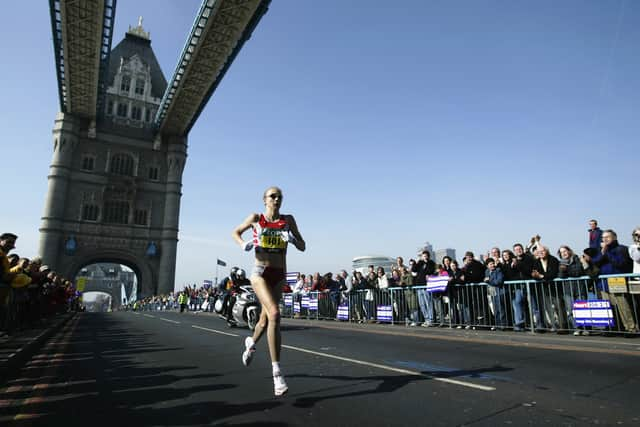London Marathon 2022: Expert nutritionist shares their top tips to help runners ‘glide’ over the finish line
This article contains affiliate links. We may earn a small commission on items purchased through this article, but that does not affect our editorial judgement.
and live on Freeview channel 276
Around 40,000 runners are preparing to run in one of the biggest marathons in the world, the London marathon.
Each person will be going into it with different goals. This could be to raise a lot of money, to run in someone’s memory, to be their personal best and more.
Advertisement
Hide AdAdvertisement
Hide AdBut, one common goal that every single participant will have is to finish their marathon.
Like any sport and any event, preparation is key. One key part of the build up to the marathon is maintaining a good diet.


Sal Hanvey, an expert nutritionist at home health testing specialist YorkTest, has shared her top nutrition tips to help runners prepare.
Hanvey said: “Taking part in a huge marathon isn’t a small challenge and requires significant dedication to both fitness and nutrition in the months leading up to and during the event itself.
Advertisement
Hide AdAdvertisement
Hide Ad“It is important to build a diet that is meeting all the key nutritional needs for runners to be ready.
“A diet containing the staple vitamins and nutrients is critical to ensuring runners’ energy levels can remain high, leaving them feeling reassured they’ll make it through the big day.
“To complete the London Marathon without feeling super depleted is a big challenge, and will allow athletes to relish in their accomplishments.”
Expert tips to finish the race in style.
- Eat nutrient-rich foods
Try and avoid any nutritional deficiencies that could impact your performance on race day. Try to eat foods that include iron, magnesium and zinc.
- Fuel with flaxseed
Advertisement
Hide AdAdvertisement
Hide AdSmoothies, oats or cereal bars all include flaxseed. Flaxseed has a high content of Omega-3 fatty acids, protein, magnesium and many other vitamins and minerals.
- Eat plenty of carbohydrates
Loading on carbohydrates will prevent blood sugar from dropping and help replenish glycogen levels for a speedier recovery. Foods such as quinoa and brown rice are quoted as being the best.
- Load up on leafy greens
Foods such as spinach, romaine lettuce, swiss chard and cabbage are the best to have as they help fight inflammation.
- And most importantly, avoid the three Bs
Avoid Beans, broccoli and berries. Whilst they’re great to snack on, but, they are slow to digest which can cause cramps and bloating.
Comment Guidelines
National World encourages reader discussion on our stories. User feedback, insights and back-and-forth exchanges add a rich layer of context to reporting. Please review our Community Guidelines before commenting.
